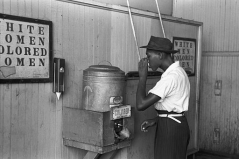What are the positive and negative side effects of gender quotas?

keywords:
quota rules / affirmative action / gender / discrimination
What are the positive and negative side effects of gender quotas?
To decrease inequality between men and women in the workplace, multiple European countries have introduced legislated quota regulations in favor of women. Since 2016, a gender quota has been entrenched in German law followed by a significant rise in the representation of women in target positions. But do quota regulations have additional effects on everyday work life? This article presents empirical research on positive and negative...
/ moreDoes discrimination fit a prototype?
keywords:
discrimination / prejudice / prototypes
Does discrimination fit a prototype?
In this blog post, I discuss what information people use to decide whether a behavior constitutes discrimination. Similar to the way people organize categories and identify objects, I review research showing that people rely on prototypes when deciding what is and is not discrimination. / more
Political ideology is more than just “liberal” and “conservative”

keywords:
political psychology / ideology / need for cognitive closure / policy attitudes / prejudice / discrimination
Political ideology is more than just “liberal” and “conservative”
In this blog post, I describe new evidence that thinking about political ideology on a single liberal/left to conservative/right spectrum masks important nuances in the origins of political ideologies and in the way that people apply those ideologies to important judgments, including those of other people (i.e., prejudice). / more
Intergroup Contact Theory: Past, Present, and Future

keywords:
discrimination / intergroup contact hypothesis / prejudice
Intergroup Contact Theory: Past, Present, and Future
 In the midst of racial segregation in the U.S.A and the ‘Jim Crow Laws’, Gordon Allport (1954) proposed one of the most important social psychological events of the 20th century, suggesting that contact between members of different groups (under certain conditions) can work to reduce prejudice and intergroup conflict. Indeed, the idea that contact between members of different groups can help to reduce prejudice... / more
In the midst of racial segregation in the U.S.A and the ‘Jim Crow Laws’, Gordon Allport (1954) proposed one of the most important social psychological events of the 20th century, suggesting that contact between members of different groups (under certain conditions) can work to reduce prejudice and intergroup conflict. Indeed, the idea that contact between members of different groups can help to reduce prejudice... / more
